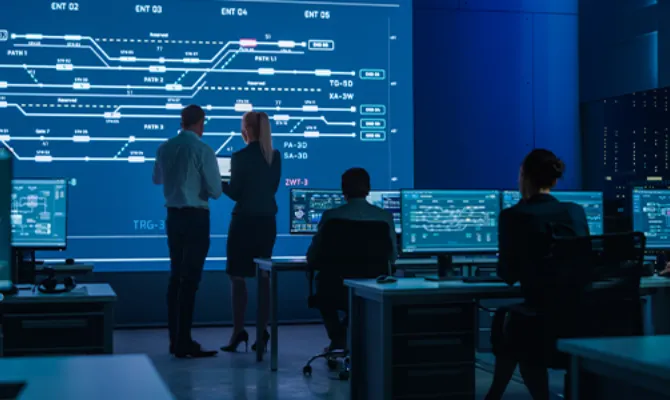In the UAE, where rapid urbanization and technological advancement demand robust energy solutions, control rooms play a pivotal role in managing the energy grid. This case study examines how control rooms facilitate energy management, ensuring uninterrupted power supply and a quick response to any issues that may arise.
Overview of the Energy Landscape in the UAE
The UAE’s energy landscape is characterized by a mix of conventional and renewable energy sources. With ambitious goals for sustainability, the country has invested heavily in smart grid technology and advanced monitoring systems. Control rooms are central to this infrastructure, enabling efficient management of energy distribution and consumption.
Role of Control Rooms in Energy Management
Control rooms serve as the command centers for energy management, equipped with cutting-edge technology to monitor the energy grid in real time. They collect data from various sources, including power generation plants, substations, and consumer usage metrics. This data is crucial for ensuring that the energy supply meets demand while maintaining grid stability.
Key Functions of Energy Management Control Rooms:
– Real-Time Monitoring: Operators monitor energy production, consumption patterns, and grid health continuously. This allows for immediate identification of any irregularities or potential outages.
– Data Analysis: Advanced analytics tools enable operators to forecast energy demand and optimize resource allocation. Predictive analytics can also help identify potential failures before they occur.
– Incident Response: In the event of a disruption, control rooms coordinate the response efforts, ensuring that power is restored as quickly as possible. This includes dispatching field crews and managing communication with stakeholders.
Case Study: Dubai Electricity and Water Authority (DEWA)
A prominent example of effective energy management through control rooms is the Dubai Electricity and Water Authority (DEWA). DEWA’s control room is equipped with state-of-the-art technology that supports the management of Dubai’s energy grid.
Key Highlights of DEWA’s Control Room Operations:
– Integration of Renewable Energy: DEWA has integrated a significant amount of renewable energy sources into its grid, including solar power. The control room plays a critical role in balancing the intermittent nature of these sources with demand.
– Smart Grid Implementation: DEWA’s smart grid initiatives allow for real-time monitoring and automated control of energy distribution. This system enables operators to adjust operations dynamically based on real-time data.
– Rapid Response Protocols: The control room has established protocols for incident management, allowing for rapid deployment of repair crews and minimizing downtime during outages. DEWA’s response time to outages has significantly improved due to these protocols.
Technological Advancements
Technological advancements have transformed the capabilities of energy management control rooms in the UAE. Key technologies include:
– IoT Sensors: Internet of Things (IoT) sensors installed throughout the grid provide real-time data on energy consumption and equipment health, enhancing visibility and decision-making.
– AI and Machine Learning: These technologies are utilized for predictive maintenance and load forecasting, enabling operators to anticipate issues before they become critical.
– Integrated Communication Systems: Advanced communication tools ensure seamless interaction between control room operators and field personnel, facilitating efficient incident management.
Challenges and Future Directions
While control rooms have significantly enhanced energy management, they also face challenges such as cybersecurity threats and the need for skilled personnel. As the UAE continues to advance its energy infrastructure, investing in workforce training and cybersecurity measures will be crucial.
Future directions may include further integration of AI and machine learning for more sophisticated predictive analytics, as well as increased reliance on renewable energy sources to meet sustainability goals.
Conclusion
Control rooms are integral to managing the energy grid in the UAE, ensuring reliable power supply and quick response to issues. The case study of DEWA highlights the critical role of these command centers in enhancing energy management through real-time monitoring, advanced technology, and coordinated incident response. As the UAE continues to innovate in energy solutions, control rooms will remain essential in driving efficiency and sustainability in the energy sector.


